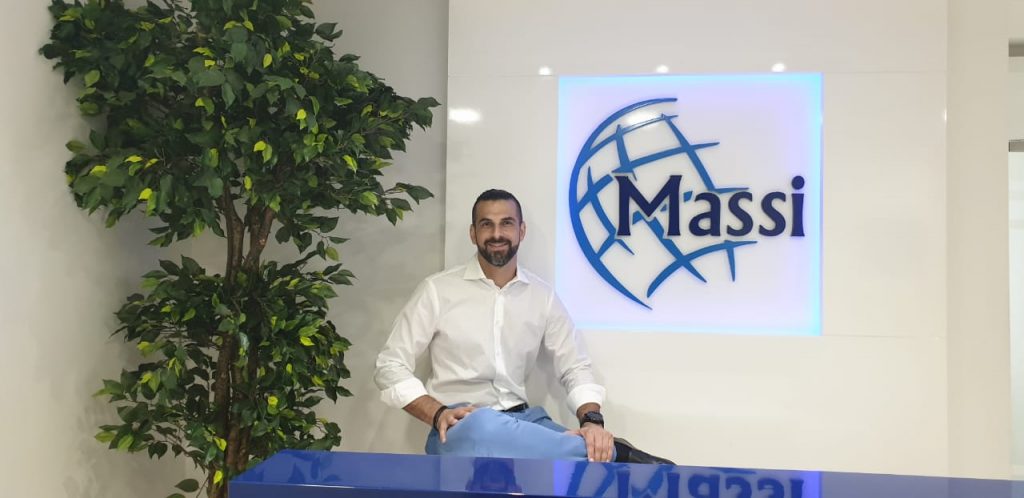São Paulo – Massi Trading, a company owned by Brazilian-Lebanese businessman Issam Hassan (pictured above) is planning new strategies to tap into the Arab market. Massi is based in Dubai, United Arab Emirates, and sells Brazilian products in the Arab countries. Its main business is poultry, but Hassan is also looking at new ways to operate in order to adapt and meet local demands.
Hassan has lived in the UAE since 2004. He used to work at a big Brazilian meat company there but, in 2012, decided to start his own business in Dubai. He intended Massi as a branch for Brazilian companies in the Arab market, acting as if it was their own office. “But without the full cost to have an office,” Hassan told ANBA on the phone.
His approach is offering professional services, with the fewer intermediaries possible, allowing for a better percentage for both the supplier and the clients, and establishing a transparent, trust-based relationship. Therefore, Massi works with Brazilian partner companies that have an office at a fixed or variable cost, the latter depending on the business development stage.
Currently, Massi works for the Brazilian poultry company Bello Alimentos fertile eggs company Pluma. Despite being Dubai-based, the company looks out for deals for the products all over the Arab market. Massi offers exclusivity for companies at their sectors and requires exclusivity in serving them in the region at their sectors. The partnership with Bello is in place since 2013 and with Pluma since 2016.
Massi has even worked with other companies in the Arab market. Partnerships are the company’s flagship, but in areas they are not established, Massi operates as a conventional trading company, purchasing and selling products, especially foodstuffs like beef. Overall, the company sells over 36,000 tonnes to the Arab market per year, mainly poultry from Brazil, Hassan said.
Massi is ready to expand and develop new partnerships with Brazilian companies. But it wants to work with those that can offer a sales volume or has already tested the market. “The companies that have already decided to enter this market or want to grow,” Hassan said. The businessman believes small volumes are not worth exporting.
He also considers new sectors to explore, such as coffee, rice and fruits. “When we deal with distributors, they don’t just buy meat and eggs, they buy a wide rage of items,” Hassan said, remembering how the Arabs really need importing foodstuffs. Massi has already established a new partnership with the water brand BMAM, which will be launched at Gulfood, a show that will take place in Dubai in February.
Besides finding new companies that may want Massi as their branch in the Arab countries and exploring new segments, Hassan is also considering how to adapt to the new scenario of poultry in the Arab countries. Nations such as Saudi Arabia want to develop their local production and have asked for Brazilian know-how and investment in return for their imports from the country. “Brazil has to look and follow it closely as well as maintain the required lobby so not to lose sales in the region,” he says.
Massi studies the possibility of acting as a consulting company for the establishment of production in the Arab countries, but that requires a partnership with a manufacturer from Brazil. Hassan believes there’s space for both local poultry, which has a lower production cost, and poultry from Brazil. Local production is mainly for the griller and is sold fresh, according to Hassan. “It’s not a direct competition to the frozen one,” he said.
Massi Trading is headquartered at Jumeirah Lakes Towers, a tower complex facing the Jumeirah Islands in Dubai. The company has a seven-people staff. Issam Hassar is Massi managing director. He’s Brazilian-Lebanese since he was born in Brazil but has Lebanese citizenship and background.
Contact Info:
Massi Trading
Website
Phone: + 971 4 394 1763
Email: issam.hassan@massidubai.com
Translated by Guilherme Miranda




